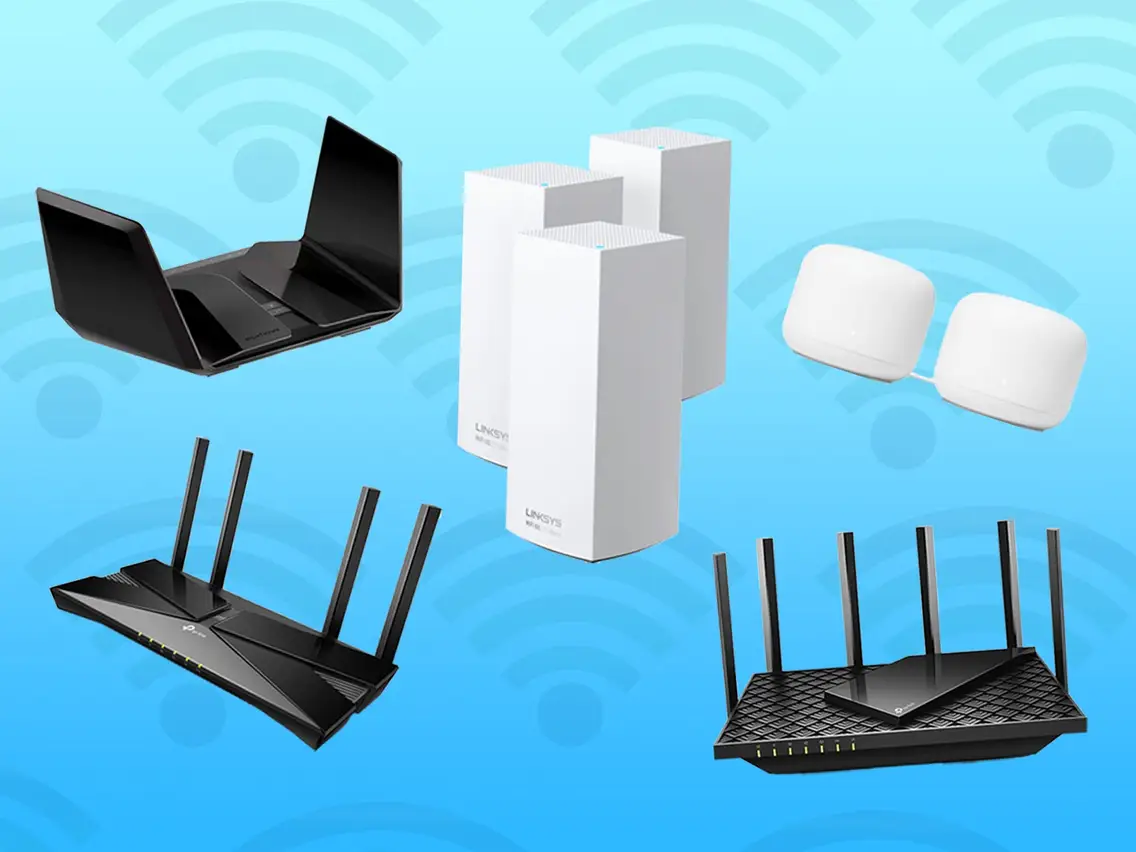A router is a device that links your internet service provider’s modem to all connected devices, creating a local area network (LAN). This enables you to share files or access software tools across multiple computers.
Different types of routers exist. These range from home and small office models to enterprise ones and core routers which form the backbone of an ISP or large business’ infrastructure setup.
What is a Router?
A router is a device that routes data packets between networks. It does this using the Internet Protocol (IP) system.
Simply put, a router ensures your mobile phone or laptop doesn’t receive data packages that send it to websites you don’t want to see. Much like an air traffic controller, it maintains order and ensures everyone on your network gets where they’re going as smoothly as possible.
Routers are ubiquitous in home networks, as well as larger corporations and organizations. They form the backbone of a company’s network infrastructure and act as its first line of defense against network intrusion attempts.
Functions of a Router
An internet router provides a range of services to connect devices to the Internet. These include sending data packets between different networked devices, setting up networks, and protecting against cyber threats.
Routers work by examining a packet’s destination IP address and comparing it with an array of routing tables to determine its next hop. These tables contain directions for transferring data within a network, often taking into account other variables like cost.
Routing tables also assist in keeping track of all routes available on each device in a network, helping to avoid any issues with sending data to incorrect destinations. In some cases, routers even come equipped with an integrated firewall which shields against malware and other security risks.
Wireless Routers
Wireless routers convert a wired signal from your Internet service provider or personal modem into Wi-Fi that can be sent to devices like laptops, smart speakers, TVs, smartphones and tablets. They may also feature ports that let you connect printers, game consoles or other WiFi devices directly to the router for faster, more dependable WiFi service.
These devices, often in black, gray or white, look like box-like enclosures with antennae for receiving signal broadcasts. They’re commonly found in both residential and office settings.
Wireless routers come in either single-band or dual-band models. Generally, dual-band models provide better range and performance for small to medium sized homes or businesses.
Wireless routers often include advanced features like media prioritization or traffic control, which help optimize your network for heavy users like Netflix or Skype. Most of these tools are customizable so you can adjust them based on what you’re currently doing.
Buying a Router
Routers enable users to connect a range of devices wirelessly to the Internet. Furthermore, they manage incoming network signals and offer security measures like firewalls.
Many Internet Service Providers (ISPs) will offer modem and router packages at a monthly subscription cost, but these devices may not be ideal for your requirements.
Rather than renting, why not invest in your own equipment and save money in the long run? Many renowned providers provide lists of compatible devices by internet speed tier, so that you can pick a model that works with your plan.
For an affordable option, consider investing in a gateway device which combines your modem and router into one unit. These inexpensive models have earned many positive reviews from internet users.


 How to Use Moz’s Spam Score Tool to Boost Your Website’s SEO?
How to Use Moz’s Spam Score Tool to Boost Your Website’s SEO?  The Top 5 Cell Phone Insurance Companies
The Top 5 Cell Phone Insurance Companies  What Is Computer Hardware?
What Is Computer Hardware?  How to Protect Your Privacy Online
How to Protect Your Privacy Online  Social Media Algorithms – Decoding How They Shape Your Feed
Social Media Algorithms – Decoding How They Shape Your Feed  Review of the Top 10 Smartphones of 2024
Review of the Top 10 Smartphones of 2024  Social Media Trends – How Platforms Are Adapting to Changing User Behaviors
Social Media Trends – How Platforms Are Adapting to Changing User Behaviors  The Development of PC Hardware – From CPUs to GPUs
The Development of PC Hardware – From CPUs to GPUs  Can You Use WhatsApp on a Computer?
Can You Use WhatsApp on a Computer? 